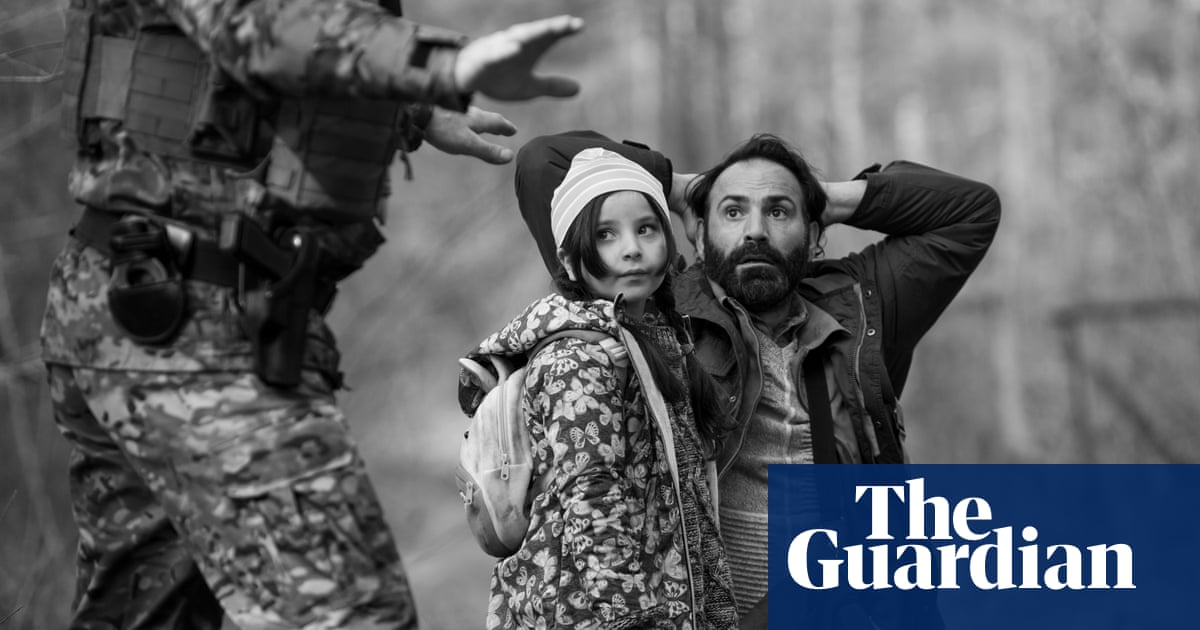
Polish film director Agnieszka Holland’s prize-winning refugee drama Green Border is to be released in Poland, weeks before the country goes to the polls on migration matters, in defiance of a major backlash from the right-wing conservative government.
Holland’s black-and-white film, which scooped up the special jury prize at last month’s Venice film festival and will be released in her native country on 22 September, is told from the perspective of a Syrian family trying to flee into the EU via Belarus, as well as that of a Polish border guard having qualms about the brutal treatment of refugees.
It is inspired by real-life events in 2021, when thousands of people became stuck on the EU’s eastern frontier in hazardous conditions after Belarus’s authoritarian leader Alexander Lukashenko threatened to “flood” the bloc with “drugs and migrants” in retaliation against sanctions.
The Guardian’s critic Peter Bradshaw described Green Border as “a punch to the solar plexus” and “a vital bearing of cinematic witness to what is happening in Europe right now”.
But Holland’s film has been aggressively vilified by the Polish government. Stanisław Żaryn, the government plenipotentiary for the security of the Polish information space, accused the director of being “out of touch with reality” and making “insinuations that are used to attack Poland, Poles and the government”.
Justice minister Zbigniew Ziobro, of the Catholic nationalist Sovereign Poland party, likened it to a Nazi Germany propaganda film “showing Poles as bandits and murderers”. In a separate address, he referred to Holland as a Stalinist.
Sovereign Poland sits in a governing alliance with the right-wing populist Law and Justice party (PiS), which is currently leading in polls on the national elections on 15 October. The government has also scheduled a referendum on migration policy for the same day, allegedly in order to fire up nationalist sentiments.
In what critics describe as a loaded question, voters will be asked in the referendum whether they support the pulling down of a barrier on the border with Belarus that was erected in response to the 2021 standoff.
Holland, who is the daughter of a liaison officer of the Warsaw Uprising and the granddaughter of victims of the Holocaust, last week demanded an apology from Ziobro and announced she would seek defamation charges against him.
In an open letter to Ziobro, the film’s co-writer Maciej Pisuk said: “I cannot ignore the fact that you personally, your political camp, the people ruling Poland today, contributed a lot to the creation of the ‘green border’. If you showed at least a minimum of decency in solving the ‘border crisis’, this film would probably never have been made.”
Political attacks against Holland have been accompanied by a wave of vitriolic online comments. On Filmweb, the most popular film website in Poland, the entry for the yet-unreleased film was flooded with thousands of negative ratings. The site later announced it had blocked comments on all news about Green Border and on critics’ ratings.
Sales agent Jean-Christophe Simon at Films Boutique announced this week that his company been forced to disable the comments on social media pages promoting the film after they were targeted by right-wing groups.











